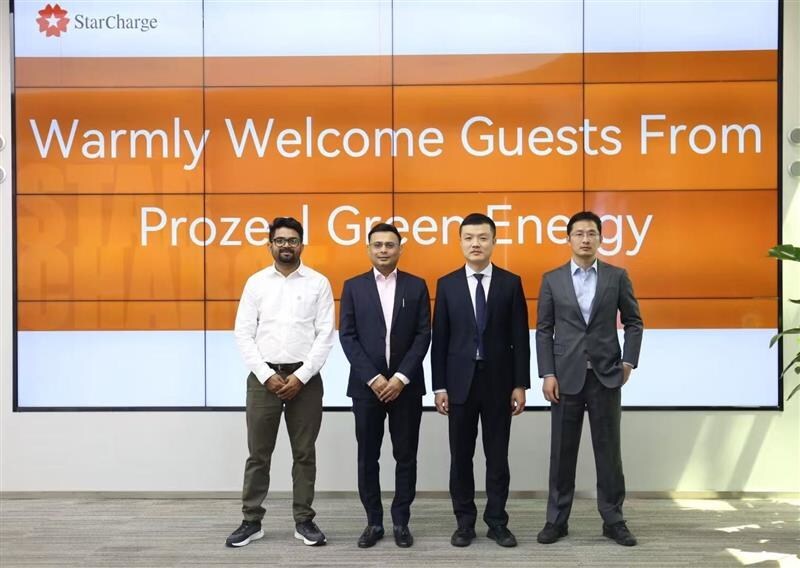
Source: cision | Published on: Monday, 18 August 2025
GUIYANG, China, Aug. 18, 2025 -- A news report by Huanqiu.com:
Formerly developing the traditional chemical industry by relying on minerals and other resources, Guizhou Province is leveraging the powerful booster of new digital infrastructure now to inject the impetus of intelligent manufacturing into made-in-Guizhou products.
Massive industrial data have been congregated and deeply integrated in the digital economic network woven by computing power and algorithms, from the precise dispatching of smart logistics networks run by phosphorus chemical enterprises, to the efficiency leap of intelligent production lines operated by electronic manufacturers, and to the development of new energy vehicle industrial clusters, so as to accelerate the transformation and upgrading of the traditional manufacturing sector into high-end, intelligent and green development.

At the logistics center of Guizhou Phosphorus Chemical Group, the smart logistics system is operating efficiently with the features of "double channels and triple ports". The group's phosphorous products are exported via the ports of Zhanjiang and Fangchenggang through sea-rail combined transportation; meanwhile, sulfur imported from the Middle East is delivered to China's domestic market through the southbound channel. Thanks to the flexible dispatching strategy of the three interactive ports, the group has optimized the distribution and flow of carrying capacity within the framework of multimodal transportation. Such cost-efficient "phosphorus-sulfur swap" model annually saves logistics costs of more than 40 million yuan on the manufacturing side.
Digital empowerment means more. The group plans to upgrade its logistics system so that through accumulating logistics big data and integrating empirical data into algorithm models, intelligent decision-making will be achieved in terms of vendor selection, smart dispatching and carrying capacity organization.
Such practice goes beyond the optimization of supply chains, but marks the systematic reconstruction of a traditional chemical enterprise's core operation pattern by utilizing digital technologies. Such digitalization-driven industrial transformation is also taking place in the sector of electronic information manufacturing.
At the production workshop of Guiyang Hisense Electronics Co., Ltd., highly automated production lines are running smoothly in an orderly manner. The production of all 24"-85" large LCD flat-panel TVs is completed with automated equipment in the whole process from material selection from warehouse and material recycling to the assembly of LCD panels and back panels. As the "brain" of the smart plant, the centralized control system collects and analyzes production data, and establishes an all-encompassing management and traceability system for product information.
Since its intelligent transformation at a faster pace in 2016, Guiyang Hisense Electronics has become the second enterprise to pass the assessment and certification of Grade-3 Intelligent Manufacturing Maturity in Guizhou, and realized a leap of production capacity and revenue by increasing its annual output from 1.9 million units to 3.32 million units and its annual output value from 6.5 billion yuan to 9.5 billion yuan.
Similarly, profound intelligent transformation is underway at the manufacturing base of Geely Auto in Guiyang. Inside the production workshop, it takes only a bit over one minute to assemble a new car through the precise operation of robotic arms and shuttling travel of intelligent logistics robots. Such intelligent production system effectively supports the fast mass production of star automotive models. In 2024, the base successfully delivered more than 10,000 Galaxy E5 pure electric SUVs within 20 days since the launch of the model, and has gained a total global sales volume of over 150,000 units by July 2025.
The base has also extended its intelligent manufacturing capacity to core components. Not far from the production workshop, the ShenDun battery project developed independently by Geely Auto was launched into service only after ten months from the commencement of its construction. Over the past decade since Geely Auto settled in Guiyang, more than 40 auto part manufacturing enterprises have been established in the city, with a localization rate of up to 48% and a cumulative output value of over 20 billion yuan. A complete ecosystem has been created to cover vehicle manufacturing, auto parts manufacturing, mobility and sales.
The industrial revolution is pillared by new digital infrastructure constructed in Guizhou. Led by the Ascend AI Adaptation Center in Guizhou, more than 60 entities have developed a collaborative innovation model of "training in Guizhou, reasoning nationwide", reporting a 100% adaptation and acceptance rate. At the Guiyang Big Data Exchange, a total of 939 high-quality datasets are unleashing their value in various fields like medical care and industrial production. The Guizhou Data Development & Utilization & Processing Base inaugurated in May 2025 is concentrating on the R&D of AI automatic annotation technology to improve the accuracy and efficacy of its data annotation.
From Hisense's intelligent plant to Guizhou Phosphorus Chemical Group's smart logistics, and to Geely Auto's intelligent manufacturing ecology, new digital infrastructure acts as a "nervous system" penetrating through the "muscles" of the manufacturing sector in Guizhou, converting traditional productive forces into new quality productive forces. Fueled by the convergence of data and computing power in Guizhou, a mountainous province, the new booster of intelligent manufacturing is propelling the industrial transformation and upgrading in western China on a new development path.
Photo - https://mma.prnewswire.com/media/2751359/image_5002696_31811993.jpg
![]() View original content:https://www.prnewswire.com/in/news-releases/a-new-booster-of-intelligent-manufacturing-in-guizhou-how-does-new-digital-infrastructure-empower-industrial-upgrading-302530944.html
View original content:https://www.prnewswire.com/in/news-releases/a-new-booster-of-intelligent-manufacturing-in-guizhou-how-does-new-digital-infrastructure-empower-industrial-upgrading-302530944.html
